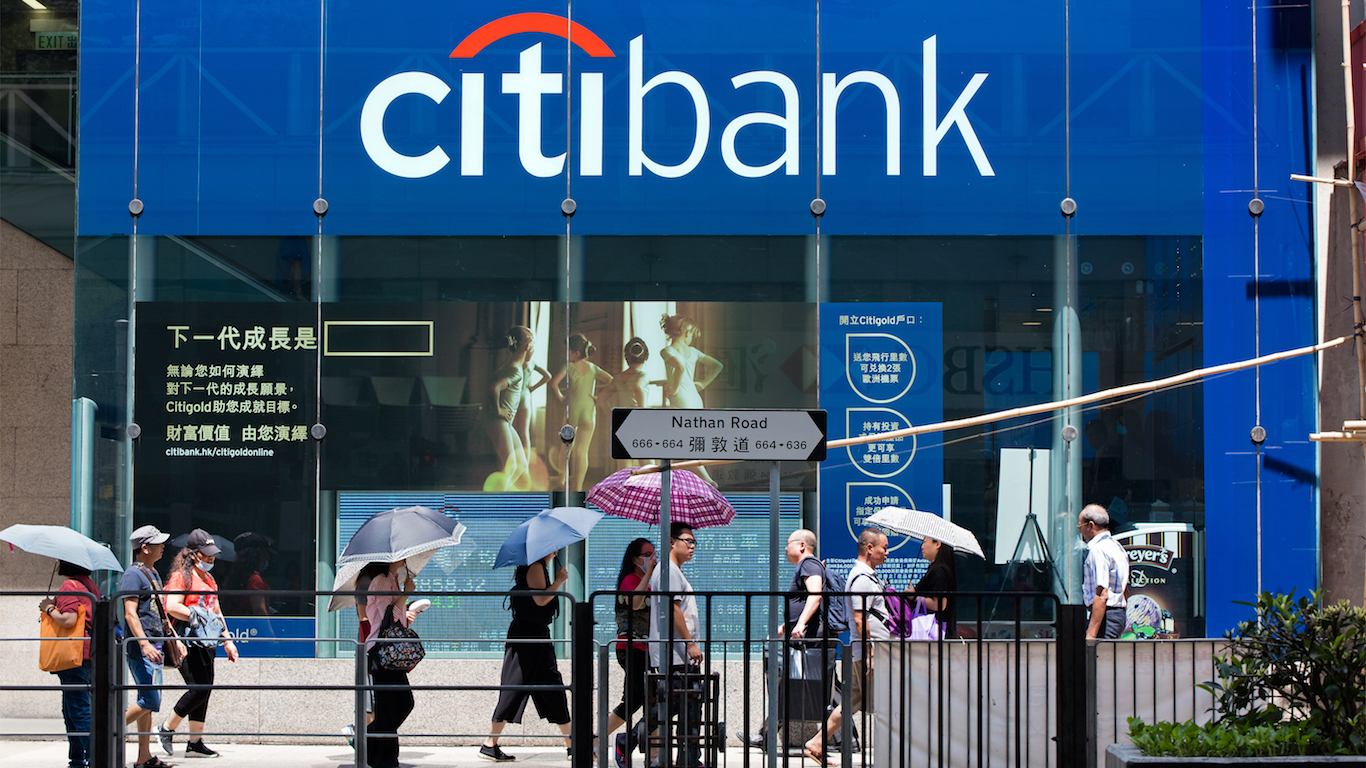Investing
Not So Fast Jim Cramer, You Should Buy These 3 Stocks He Says to Sell

Published:

Jim Cramer is probably the closest thing we have to stock market superstar influencer. The host of CNBC’s “Mad Money” show is entertaining and popular with a broad swath of investors who like his passion and showmanship. Arguably, the best-liked segment is his Lightning Round where he gives buy-sell-hold advice on viewer stock picks. Occasionally he’s even right!
There are many sites that track his stock picks and often people say you should do the exact opposite of what Cramer recommends. If he’s upbeat about a stock, you should sell it, and vice versa.
So even though he’s smart, articulate, and funny, should you be taking investment advice from him? Below are three stocks he is bearish on. Let’s see if you really should be contrarian and be a buyer instead.

A confused mind always says “no” is a salesman’s mantra to remind him to keep things simple. Cramer is confused about banking stock Citigroup (NYSE:C) and the relationship between its book value and the stock price. As a result, the Mad Money host says, “I’m going to say no” to the bank.
Cramer’s confusion is not unfounded. While Citigroup is a company in turnaround mode, the market has assigned a deeply discounted price on the stock, which trades at just a fraction of its book value. Yet therein lies the opportunities for investors.
No doubt Citi has its problems. It operates under consent orders from regulators and was recently admonished again by the Federal Reserve for making insufficient progress on data and risk management and was fined $60 million. Its global operations makes it a complex business, though it is in the process of simplifying its far-flung banking and investment arms.
The asset sales should help make more capital available to invest in the business while lowering the risk associated with it. And precisely because it is trading at such a discount to its tangible book value, it is a low bar to step over. It might not reach the premiums peers like JPMorgan Chase (NYSE:JPM) or Wells Fargo (NYSE:WFC) sport, but it presents some considerable upside from current levels.

Cramer has no hesitation with his recommendation against buying Coca-Cola (NYSE:KO) at these prices. While he admits the beverage stock is a good company overall, the stock-picking guru says, “Straight up, way too far, way too fast…Doesn’t work for me, let it come in.”
What Cramer is referring to is Coke enjoying fast growth this year relative to its earnings. KO stock is up 20% in 2024 and has jumped 16% in just the last six months, raising its valuation to more than 28 times earnings. Shares also go for more than 6 times sales and 33 times the free cash flow it produces.
Yet the reason Coca-Cola is enjoying such a strong run is the excellent earnings it has produced over the past few quarters. Management is now guiding full-year currency-adjusted earnings per share to grow between 13% and 15% over 2023.
While Cramer isn’t wrong about KO’s valuation, a long-term investor shouldn’t be too concerned about whether he can earn an extra point or two by waiting for a lower price. You could safely buy in now and still earn generous returns over the coming decades.

Biotech Viking Therapeutics (NASDAQ:VKTX) is the third stock Cramer isn’t hot on despite the bright future it holds. The stock guru says that even though its weight-loss drug currently in clinical trials looks good, “it costs so much money to build the factories, they’re going to have to get a takeover to be able to do that.”
Viking has made a big splash in the pool currently owned by Novo Nordisk (NYSE:NVO) and Eli Lilly (NYSE:LLY). These pharmaceutical giants are pulling in billions of dollars from their GLP-1 drugs Wegovy and Zepbound that result in dramatic weight loss by patients. Viking’s lead drug candidate VK2735 also targets the GLP-1 receptor, but it is a once-a-day pill rather than a weekly injection like the competition.
That opens up a much wider universe of potential patients than the pharma giants target. Although a number of biotechs (and the pharmas, too) are pursuing pill dosing options, the safety and tolerance of patients to Viking’s treatment is encouraging.
It also has other therapies under investigation. And though Cramer is correct that building out facilities is expensive, once Viking gains approval, financing shouldn’t be an issue. Further, a buyout also becomes a distinct possibility at that point. For all those reasons, Viking Therapeutics still looks like a buy.
Retirement can be daunting, but it doesn’t need to be.
Imagine having an expert in your corner to help you with your financial goals. Someone to help you determine if you’re ahead, behind, or right on track. With SmartAsset, that’s not just a dream—it’s reality. This free tool connects you with pre-screened financial advisors who work in your best interests. It’s quick, it’s easy, so take the leap today and start planning smarter!
Don’t waste another minute; get started right here and help your retirement dreams become a retirement reality.
Thank you for reading! Have some feedback for us?
Contact the 24/7 Wall St. editorial team.